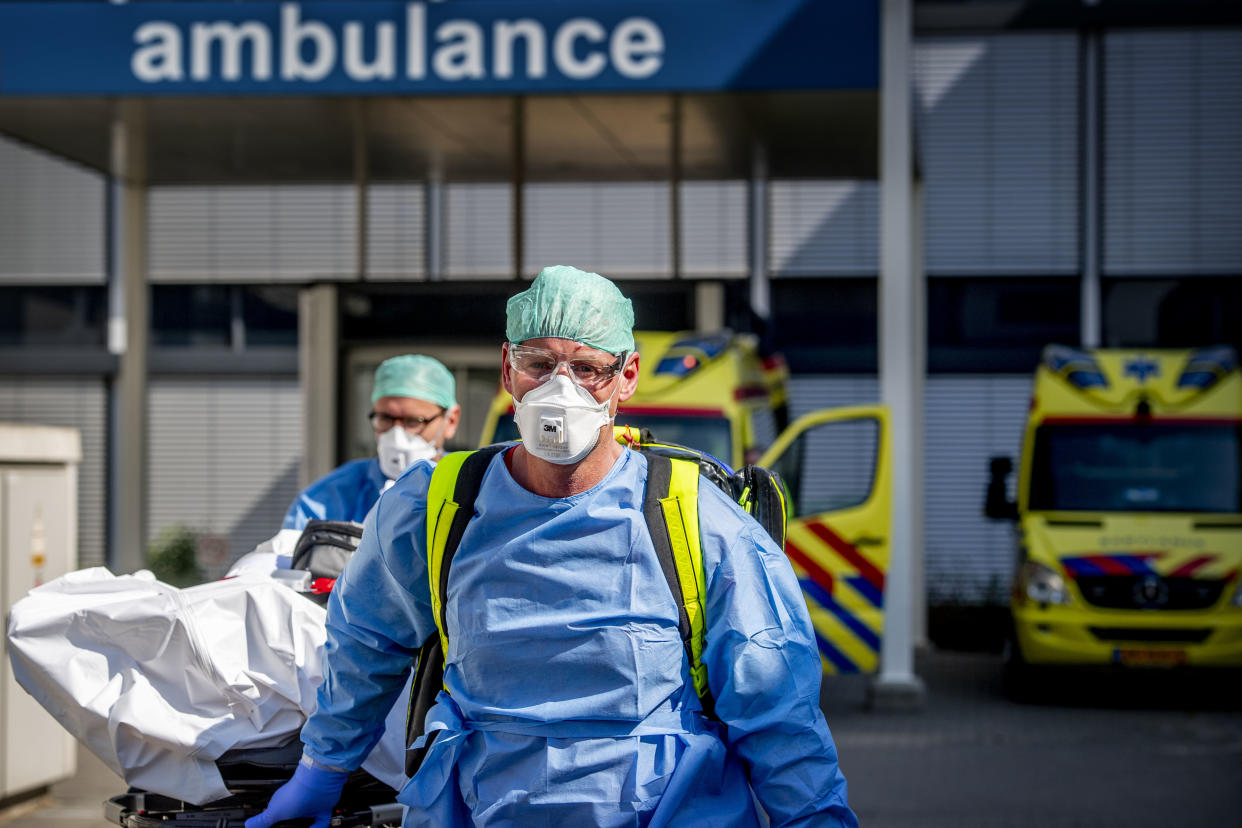Coronavirus cases reach 1.5 million globally, with more than 90,000 deaths

The coronavirus pandemic has now infected over 1.5 million people worldwide, figures show.
According to Johns Hopkins University, the tally was reached on Thursday, in the week that marked 100 days since the outbreak began.
Total deaths worldwide has now surpassed 90,000, with over 7,000 of those in the UK.
Italy remains the worst-hit country, with nearly 18,000 deaths, while Spain has seen nearly 15,000 people die so far.
The US has the most confirmed cases, with more than 430,000 people infected – three times the number of the next three countries combined.
In the UK, Wednesday saw a rise of 938 in the number of deaths in hospitals of patients who tested positive for COVID-19 – the highest new total so far.
Latest coronavirus news, updates and advice
Live: Follow all the latest updates from the UK and around the world
Fact-checker: The number of COVID-19 cases in your local area
6 charts and maps that explain how COVID-19 is spreading
The government is meeting on Thursday to decide whether to extend the current lockdown in an attempt to flatten the curve of new cases and ease the burden on the NHS.
In Wuhan, where the outbreak first began in January, lockdown has ended – allowing millions to take to the streets once again and travel in planes and trains.
Russia has seen a rapid rise in coronavirus cases in recent weeks, with the number doubling every few days.
The number of cases in the country has surpassed 10,000, after health officials reported 1,459 new cases, with 76 deaths.
Moscow accounted for 6,698 infections, authorities said.
President Vladimir Putin earlier this month ordered most Russians to stay off work until the end of April as part of a partial economic shutdown to curb the spread of the coronavirus.
Governments around the world are considering their lockdown exit strategies despite the mounting coronavirus deaths.
However, politicians and health officials are warning that while deaths, hospital admissions and new infections may be levelling off in places like Italy and Spain, the crisis is far from over and a second wave could hit if countries let their guards down too soon.
In Spain, budget minister Maria Jesus Montero said "normal life" will gradually return beginning on 26 April, but warned it would be a staggered easing.
Spanish health authorities said reported infections and deaths have gone down again after a two-day uptick, hopefully signalling a return to an overall slowdown under a national lockdown.
Coronavirus: what happened today
Click here to sign up to the latest news, advice and information with our daily Catch-up newsletter

 Yahoo News
Yahoo News 


